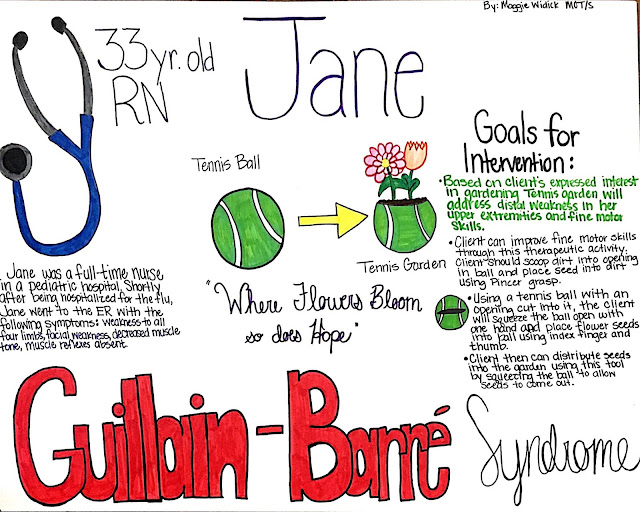Tennis Garden- Media Project

Upon the creation of my flower garden I fount it might be a good idea to make multiple of these and put in a vase together as its difficult to get the ball to stay up right on its own. I did not have the adequate amount of supplies to do this. Below shows my second intervention which was easily created by cutting slit into the ball. Then the client will open the ball by squeezing it and place the seeds in the tennis ball one at a time using their fine motor skills.